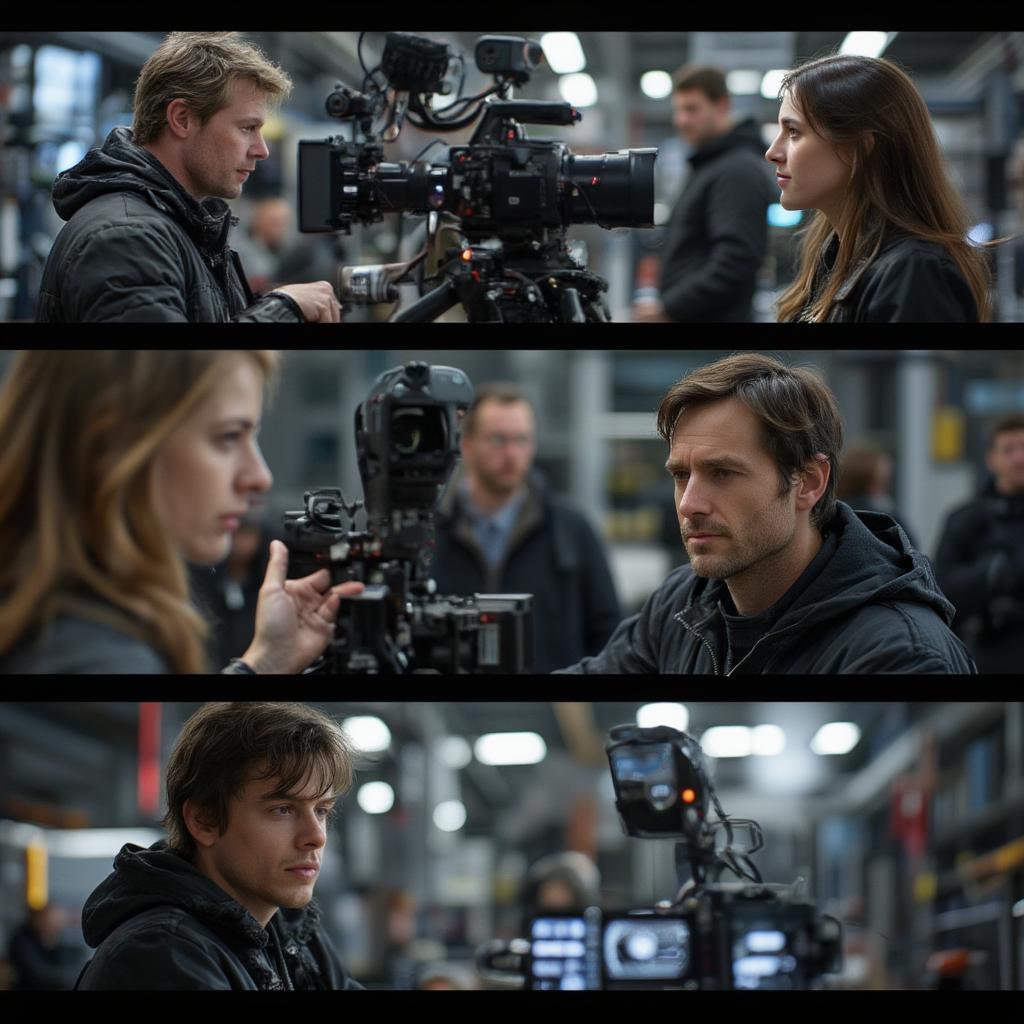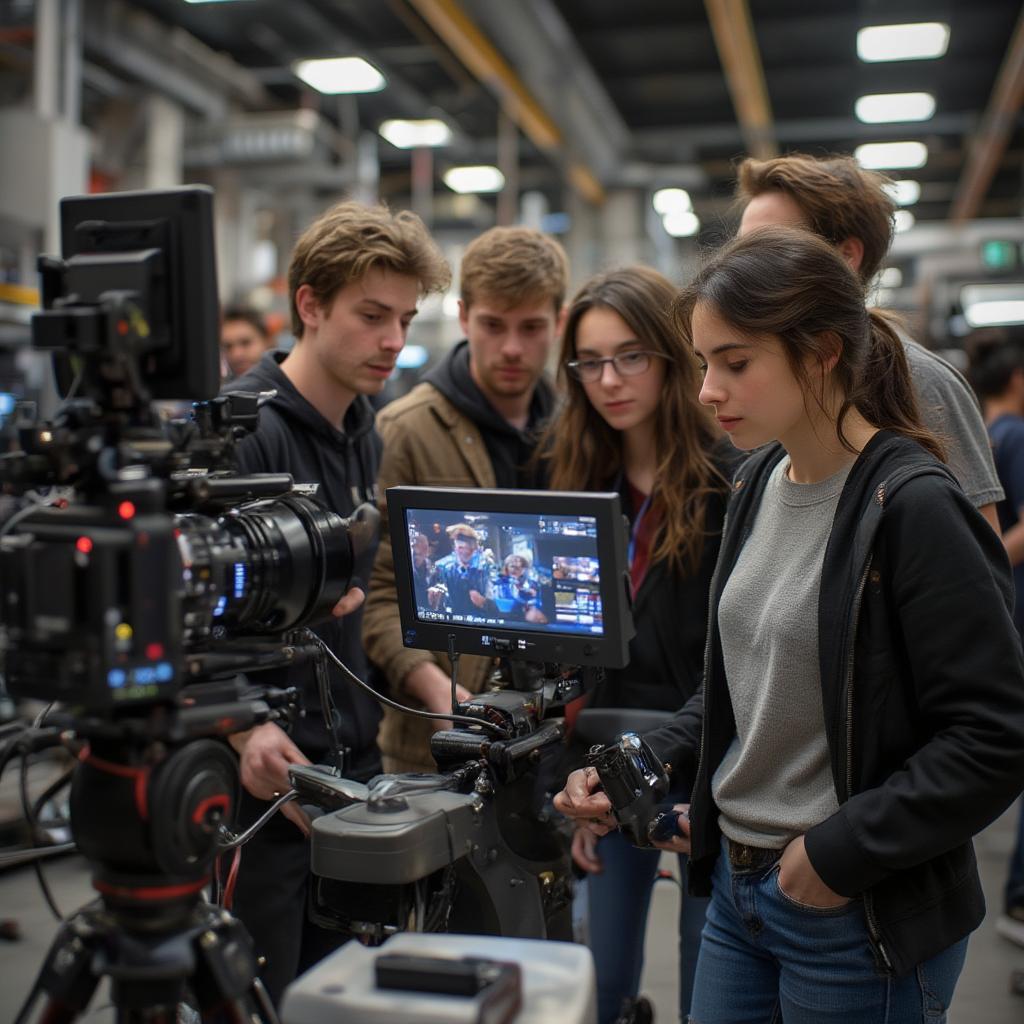The Best Colleges for Film Production Cinematography

Choosing the right college for a career in film production cinematography is a pivotal decision. Aspiring cinematographers need a program that fosters creativity, provides hands-on experience with cutting-edge technology, and connects them with industry professionals. This article explores some of the top institutions renowned for their film production and cinematography programs, equipping students with the skills and knowledge to thrive in this competitive field.
best film schools for cinematography
Factors to Consider When Choosing a Film School
Before diving into specific schools, it’s crucial to understand the key factors that contribute to a successful film education. A strong program should offer a comprehensive curriculum encompassing the art and science of cinematography. Look for programs with a balance of theoretical knowledge and practical application, including courses in lighting, camera operation, composition, post-production, and visual storytelling. Faculty expertise is another critical aspect. Experienced instructors who are active in the industry can provide invaluable insights and mentorship. Access to state-of-the-art equipment is essential for hands-on learning. Finally, consider the school’s network and alumni connections, as these can open doors to internships and career opportunities.
Top Film Schools for Cinematography
American Film Institute (AFI) Conservatory
The AFI Conservatory, located in Los Angeles, consistently ranks among the top film schools globally. Its intensive, hands-on approach immerses students in the filmmaking process, providing ample opportunities to collaborate on real-world projects. AFI’s emphasis on visual storytelling and its proximity to Hollywood make it a prime choice for aspiring cinematographers.
California Institute of the Arts (CalArts)
CalArts, known for its experimental and interdisciplinary approach to art education, offers a renowned film and video program. The curriculum emphasizes critical thinking and artistic expression, fostering a unique environment for cinematographers to develop their individual styles.
University of Southern California (USC) School of Cinematic Arts
USC’s School of Cinematic Arts boasts a rich history and a strong reputation within the industry. Its comprehensive program offers a wide range of specializations, including cinematography, and provides students with access to world-class facilities and resources.
New York University (NYU) Tisch School of the Arts
Located in the heart of New York City, NYU’s Tisch School of the Arts provides students with unparalleled access to the city’s vibrant film and television scene. The cinematography program emphasizes both technical proficiency and artistic vision, preparing students for diverse career paths.
What Makes a Cinematography Program Stand Out?
Hands-On Experience and Equipment
The ability to work with professional-grade equipment and participate in real-world productions is paramount. Schools with strong industry ties often provide students with internship opportunities and access to film sets, allowing them to gain practical experience and build their portfolios.
Faculty Expertise and Mentorship
Learning from experienced professionals is invaluable. Faculty members who are active cinematographers can provide students with insights into current industry trends, techniques, and best practices. Mentorship opportunities can help students develop their skills and navigate the challenges of a competitive field.
Networking Opportunities and Alumni Connections
A strong alumni network can open doors to career opportunities. Schools that foster a sense of community and provide networking events can connect students with potential employers and collaborators.
Choosing the Right Path for You
Undergraduate vs. Graduate Programs
Deciding between an undergraduate and graduate program depends on your individual goals and experience. Undergraduate programs provide a foundation in filmmaking principles, while graduate programs offer more specialized training and advanced coursework.
Specializations Within Cinematography
Cinematography encompasses various specializations, such as documentary filmmaking, narrative filmmaking, and commercial production. Choosing a program that aligns with your interests can help you develop the specific skills needed for your desired career path. For those interested in exploring the broader field of film studies, checking out film studies major colleges might be beneficial.

Beyond the Classroom: Building Your Portfolio
While a strong educational foundation is essential, building a compelling portfolio is equally crucial for success in cinematography. Actively seeking opportunities to shoot and edit your own projects, participating in student film festivals, and collaborating with fellow filmmakers are vital steps in showcasing your talent and gaining experience. Consider exploring resources like cinematography film video production for further insights.
Conclusion
Choosing the best college for film production cinematography requires careful consideration of your individual aspirations and learning style. By researching programs, visiting campuses, and connecting with current students and alumni, you can make an informed decision that sets you on the path to a successful career in this exciting and dynamic field. Remember, the journey towards mastering cinematography is ongoing. Continuous learning and exploration are key, and resources like cinematography classes near me can supplement your formal education. Don’t forget to explore the foundational aspects with the best film undergraduate programs.
FAQ
-
What is the difference between cinematography and videography?
-
What are the essential skills for a cinematographer?
-
How important is networking in the film industry?
-
What are the different career paths for cinematographers?
-
How can I build a strong portfolio as a student?
-
What is the average salary for a cinematographer?
-
What are the common software used by cinematographers?
-
How can I find internships in cinematography?
-
What are some of the challenges faced by cinematographers?




